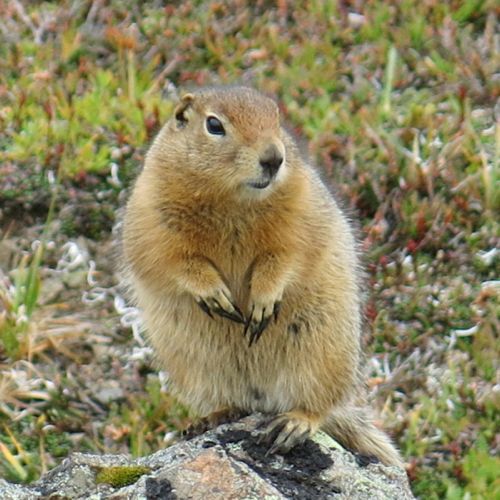One of several questions Team Squirrel hopes to answer is why arctic ground squirrels, unlike other arctic vertebrates, appear to maintain 24-hour rhythms during the continuous daylight of summer. Does the timing of this biological clock give the squirrels any evolutionary advantage?

It is thought that it may allow them to reduce energy expenditure by helping them to predict the time of day when it is warmest. To find out, we are capturing up to 12 male ground squirrels. Males will be used so that the reproductive success of the females is not harmed. The males we catch are implanted with a tiny data logger that measures body temperature every 90 minutes. The squirrels are then subjected to a light/dark cycle that will phase-shift their daily rhythm, making them more active at night. We hope to measure how long it will take to return to a normal cycle in the absence of darkness as a cue. We also want to determine if more energy is expended when the squirrel is out of sync with its normal circadian rhythm.


Comments